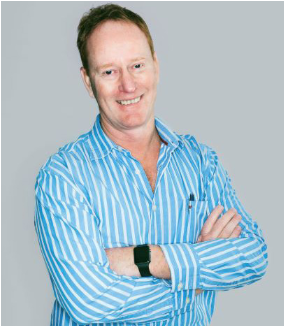By: Steve Symes, CEO, Genasys Technologies

There is no benefit in surrounding yourself with intelligent people and dictating to them how to do their job. If you know better, why employ them in the first place? Good people. Good relationships. Good product. And a healthy cashflow. These for me are the pillars on which every successful business is built.
From the very first string of code written under the Genasys company name, my ethos was to have fun while putting in the hard work. The company has grown considerably since 1997 – we’ve opened international offices and hired many new bright minds – but we cling to this mantra as if our lives depend on it.
From the get-go, all our initial hires were people who were either personal references or previous colleagues. As someone who did not have any hiring skills, it gave me the necessary confidence in our people and created synergy among us from day one.
As with any start-up business, the lines between business and personal are blurred in the beginning. If you want your business to succeed, you have to live and breathe the business, but there does come a time, as the business matures, that you gain more perspective on the separation between life and work. But the business always remains an integral part of your identity.
Company growth in itself can be a challenge. When Genasys became a corporate, this loss of the personal, not knowing each employee personally and increasingly having to rely on colleagues to ensure the smooth running of our operations and quality of our solutions, was jarring at first, but you realise quickly that it is the natural progression of a successful company.
Growth relies heavily on your team’s ability to foresee market changes and the opportunities therein. Some companies find a specific point in time to adjust their offering when something in the business needs to change in adapting to market changes.
The following is a quote often attributed to evolutionist Charles Darwin, “It is not the strongest species that survive, nor the most intelligent, but the ones most responsive to change.” As true as it is for biological processes, so it is for a business. You have to be able to adapt to changing opportunities and threats. At one point in 2001, we changed from being a contracting company to one that provides insurance technology product solutions, but things are always changing and these mini adaptations happen all the time. They have to.
The last few months have tested every business’s ability to change, and have cruelly made an example of companies who did not have an agile approach in place. Our team has been working remotely for some time, providing remote implementations and support for various clients in countries across the world. Business continuity for us was an accelerated work-from-home plan, which was supported by existing infrastructure. That said, this pandemic was still a shock to the system and I am impressed with how quickly the staff pivoted to work from home and how effective it can be. I do miss the personal interaction with colleagues and clients, which will never be replicated in a virtual environment.
It comes back to surrounding yourself with people smarter than yourself and allowing them to be their best. It has served us at Genasys well over the last 23 years, through the start-up and furious growth phases, even during a global pandemic. It has helped us keep upright the other pillars of our company, and we’ve had fun doing it.



